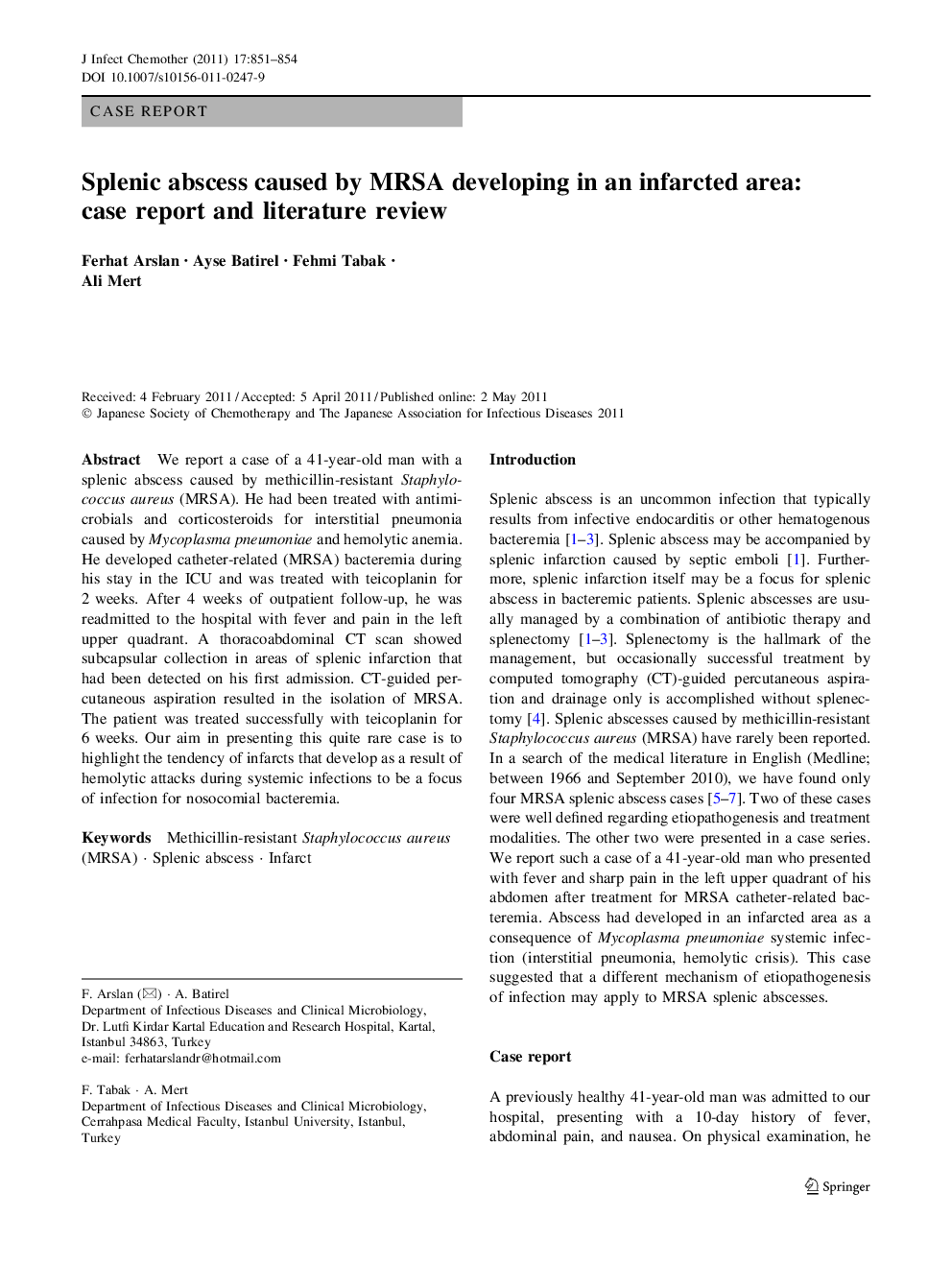| Article ID | Journal | Published Year | Pages | File Type |
|---|---|---|---|---|
| 3377318 | Journal of Infection and Chemotherapy | 2011 | 4 Pages |
We report a case of a 41-year-old man with a splenic abscess caused by methicillin-resistant Staphylococcus aureus (MRSA). He had been treated with antimicrobials and corticosteroids for interstitial pneumonia caused by Mycoplasma pneumoniae and hemolytic anemia. He developed catheter-related (MRSA) bacteremia during his stay in the ICU and was treated with teicoplanin for 2 weeks. After 4 weeks of outpatient follow-up, he was readmitted to the hospital with fever and pain in the left upper quadrant. A thoracoabdominal CT scan showed subcapsular collection in areas of splenic infarction that had been detected on his first admission. CT-guided percutaneous aspiration resulted in the isolation of MRSA. The patient was treated successfully with teicoplanin for 6 weeks. Our aim in presenting this quite rare case is to highlight the tendency of infarcts that develop as a result of hemolytic attacks during systemic infections to be a focus of infection for nosocomial bacteremia.
